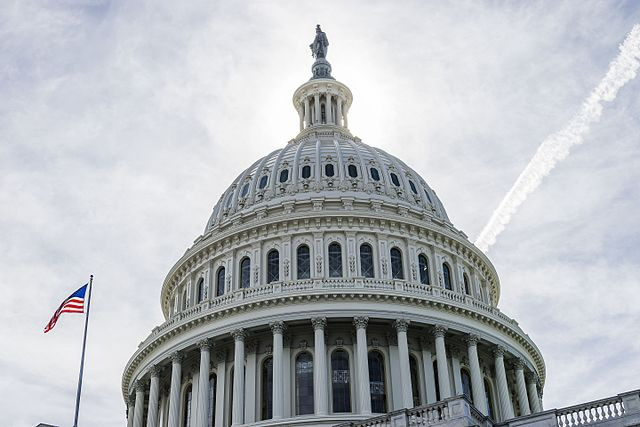The specter of a partial government shutdown looms large over Capitol Hill, with lawmakers embroiled in a bitter standoff and the deadline for a resolution just days away. The impasse has left Washington in a state of uncertainty, as attempts to forge a bipartisan spending deal have so far come to naught amid deep divisions over policy issues and fiscal priorities.
The crux of the deadlock centers around House Republicans, led by Speaker Mike Johnson of Louisiana, who find themselves under intense scrutiny. Johnson, in particular, is navigating a precarious path, pressured by conservative factions within his party to secure policy victories. Yet, this hardline stance has led to a fraught relationship with Senate Democrats, who view the impasse with growing frustration and alarm.
Senator Elizabeth Warren of Massachusetts, in a candid expression of dismay, questioned the Republicans' inability to fulfill one of Congress's fundamental duties: funding the government. "What is wrong with these people?" she lamented, highlighting the absurdity of the situation. Similarly, Senator Jon Tester of Montana voiced his exasperation, criticizing the recurring brinkmanship that has come to characterize the budgetary process.
Amid this political drama, Senate Majority Leader Chuck Schumer has pointed fingers at the House Republicans, attributing the delay to internal discord within their ranks. Schumer's critique elicited a sharp retort from Johnson, who accused Schumer of counterproductive rhetoric, insisting that the House was earnestly working towards a compromise.
On the other side of the aisle, Senate Minority Leader Mitch McConnell underscored the potential harm a shutdown could inflict on the country, calling for bipartisan cooperation to avert such an outcome. McConnell's stance reflects a broader concern within the Republican establishment about the political fallout from a government closure.
The current impasse is not just about funding levels but also involves contentious policy debates, from abortion restrictions to food assistance cuts, which have polarized lawmakers. These divisions have complicated negotiations, with hardline conservatives demanding significant concessions that are untenable to Democrats and even some Senate Republicans.
As the deadline approaches, the federal government has begun preparing for the possibility of a shutdown, a scenario that would have wide-ranging implications. Essential services might continue, but thousands of federal employees could face furloughs, and critical programs, from food assistance to veterans' services, could be disrupted.
The prospect of a shutdown also casts a shadow over other pressing legislative priorities, including support for Ukraine and the impeachment proceedings against Homeland Security Secretary Alejandro Mayorkas. The political stakes are high, with President Joe Biden set to convene congressional leaders in a bid to break the deadlock.
With time running out and the risk of a shutdown growing by the hour, the question on everyone's mind is whether lawmakers can bridge their differences and reach a consensus. As the nation watches, the outcome of this political drama will not only affect government operations but also shape the public's perception of their elected representatives' ability to govern effectively.






